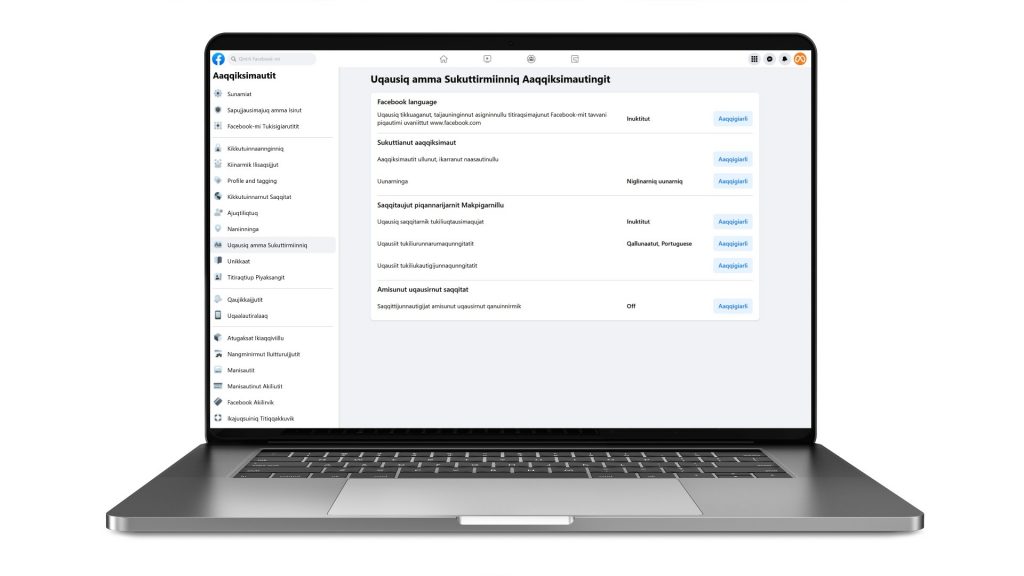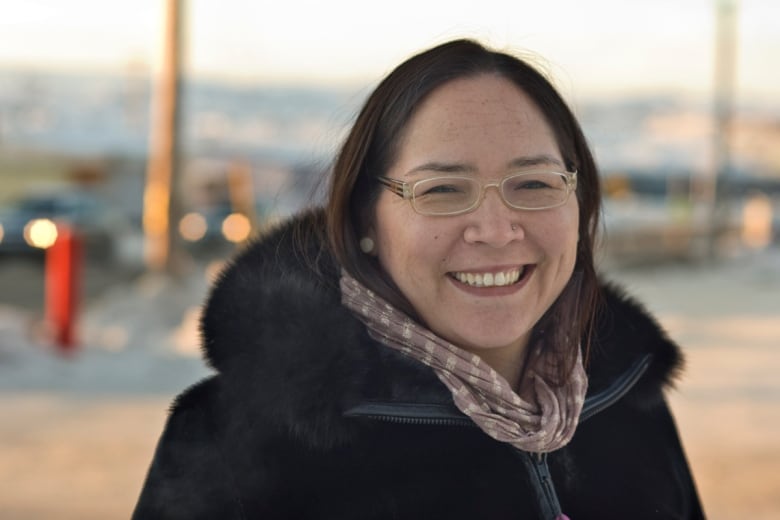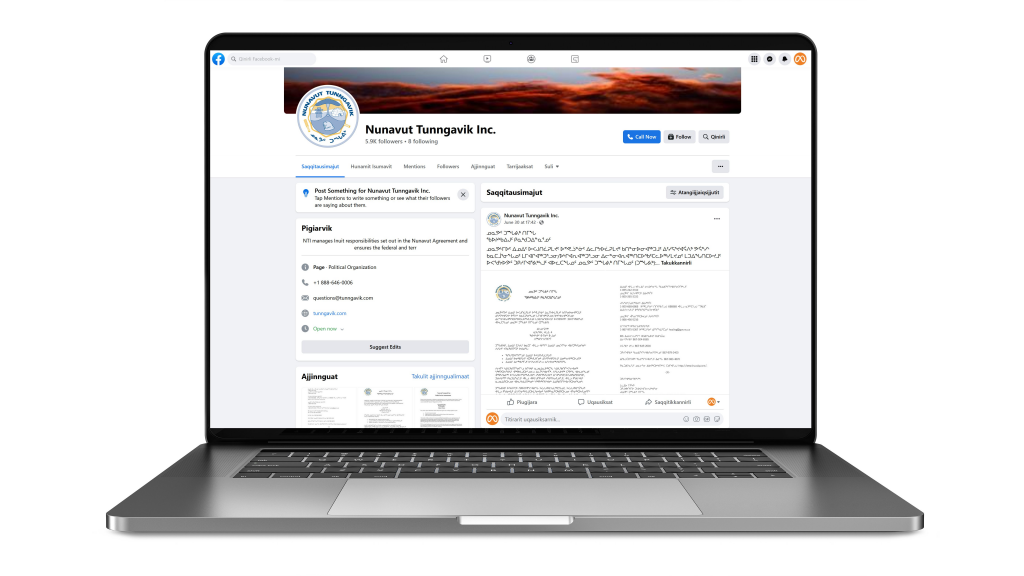Inuktitut interface now available on Facebook desktop

After four years of work, the Facebook desktop interface will finally be available in Inuktitut on July 8.
“[The Inuit language] is a vehicle to explain who we are, help understand who we are in the world,” Aluki Kotierk, president of Nunavut Tunngavik Inc. (NTI), the Nunavut land claims organization, said in a phone interview.
“So it’s really important as Inuit that we see our language in every aspect of our lives and that it’s not only used in our homes, but that we see it in public, on television, hear it on radio and, in that vein, it makes sense that we’re able to use it in social media as well.”
The idea for the project dates back to 2018 when Kotierk met with Kevin Chan, the Global Policy Director of Meta, Facebook’s parent company, and talked about the need for translating Facebook into the Inuit language, especially in a place like Nunavut which has no roads and where there’s enormous distance between villages.
“Social media has become very important in our communities,” Kotierk said. “Many people know that communities are all fly-in and it’s very expensive to travel, so Facebook is a really good way to be able to be in contact with each other.”
In the communities, local Facebook groups have become important hubs for everything from organizing events, returning lost items, to parents telling their children to come home for dinner.
Kotierk says the project is important on many levels, from youth seeing their language reflected in the tech realm, but also for unilingual elders to be able to participate fully in the important tool.
4,500 words to translate
In all, 2,000 strings of language on Facebook needed to be translated.

Dozens of Inuit language dialects are spoken across Arctic Canada and there is no standardized pan-Canadian Inuit-language terminology.
The most recent Canadian census found there are 42,065 Inuit language speakers in Canada. Of those, 39,770 speak Inuktitut.
Initially, the intention for the Facebook project was to use terminology that Inuit-language speakers themselves put into the Facebook interface, but the number of dialects complicated the process and made it difficult to determine the best word that would actually be used for terms like “Like” or “Page.”
So it was decided to focus on Inuktitut, the most spoken Inuit-language dialect. The Pirurvik Centre, a centre in Canada’s eastern Arctic territory of Nunavut that works on Inuit language, culture and wellness, led the translation process, working with other Inuktitut speakers to develop the terminology for the approximately 4,500 words necessary for Facebook.
“It’s so exciting because I’ve always been of the view that the language doesn’t just express who we are and how we fit into the world, but it’s a practical language that we can use in our lives in 2022. It’s really important as Inuit that we develop new terminology for concepts or products that were not part of our culturally previously but that can easily have a word that we understand.”

2022 marks the beginning of the UNESCO Decade of Indigenous Languages 2022-2032, and Kotierk says the project is an important contribution to making the Inuit language more visible.
The official launch of the new Facebook interface will take place at a news conference in Iqaluit, Nunavut’s capital city, on July 8, Kotierk said.
Coming the day before Nunavut Day, on July 9, makes the launch that more poignant, she says.
“We’re proudly asserting our language in modern technology as a way to assert who we are, right on Nunavut Day, a day all Inuit in Nunavut celebrate as the day Nunavut became a territory and that Inuit were the ones that were able to achieve that,” Kotierk said.
Related stories from around the North:
Arctic: German project to house everything published in Siberian and Arctic languages to seek new funding, Eye on the Arctic
Sweden: Social media strengthens Sami language, Radio Sweden
United States: ‘They’re reaching for this’: Alaska students compete in Yup’ik and Iñupiaq spelling bees, Alaska Public Media



